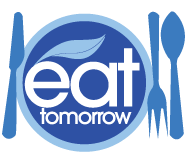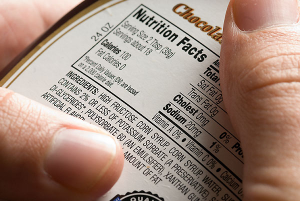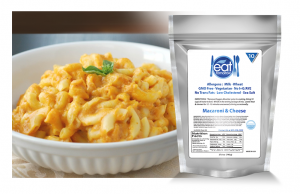by Eat Tomorrow Foods staff writer:
We hear it all the time…“How many calories are in that meal?
Food storage companies battle constantly over claims that their foods are the most “caloric”, or that portions must meet certain calorie counts and standards. But are those arguments valid, and at what cost?
The Daily Value percentage (%DV), the legal standard for dietary measurement in the U.S., was developed in 1968 by the Food and Drug Administration as a metric for nutritional comparison of packaged foods in order to regulate the nutritional claims of commercial food processors and packagers.
You read that right…1968!
At that time the FDA knew that caloric consumption recommendations would need to be variable (based on gender, age, health condition, body type, and activity levels) and therefore developed several ranges in an attempt to fit as many situations as possible. However, when they finally realized how difficult and confusing those ranges would be, they turned to the ultimate experts on nutrition for their final answer…
…the American public.
Through public survey it was “scientifically” determined that a diet of 2350 calories was the correct amount for all people 4 years of age and older, except pregnant or lactating women…
…so, the FDA rounded down to 2000 calories.
This is big government at it’s best, but the real problem is that our understanding of nutrition and body chemistry has changed dramatically over the past 35 years with minimal adjustment to these basic dietary standards. Importantly, there has also been an immense change in the amount and quality of processed vs whole foods. Because processed foods generally absorb into the body at a much quicker rate, the reality of the caloric impact (the speed at which the body can access, burn calories and create energy) is completely different than previously understood. Sugars vs plant-based carbohydrates…fats vs proteins…sodium…fiber…they all matter and affect the caloric end-result.
Modern weight-loss diets incorporate this advanced nutritional thought. A healthy high-protein diet, for example, can be as much as 400 calories per day less than the recommended allowance.
Though they will work fantastically as your sole food source for emergencies, long-term dehydrated or freeze-dried foods aren’t intended to be the only thing you eat over an extended period. No single food storage product is! A proper and complete food preparedness plan would use these foods as a nutritional base, augmented by fresh foods from your garden or constituted canned foods from your food supply. Under those circumstances a pre-packaged serving containing 150-350 calories can work perfectly as the base to your individual meal. Whereas, a person might need to eat 2 or 3 servings to fulfill their nutritional needs if nothing else is available.
Calories are important, but empty calories are expensive. Many programs have you paying for sugar-filled drink mixes and calorie-laden fillers with no real nutritional value. Don’t misunderstand, there’s nothing wrong with storing these things, but an understanding of the value or cost can help you frame your food-storage discussions and budgets. Eat Tomorrow Foods, which (unlike many food companies) manufactures their own food instead of reselling others, has been incredibly effective at cutting out the fluff and filler and providing great tasting and highly nutritious, GMO, cholesterol and trans fat free foods at the absolute lowest possible cost to the prepared consumer.
So, when that so-called expert trying to sell you food storage drowns you in calories (generally created by sugars and other low-nutrient ingredients), make sure you understand the cost benefit. Having a proper plan and an understanding of your family’s personal dietary and nutritional needs will allow you to feed them when they need it the most.
We want to help. Our goal is to provide every family in America with an opportunity to feed their families in case of emergency. Call us at Eat Tomorrow Foods for a no obligation evaluation of your food-storage needs.




